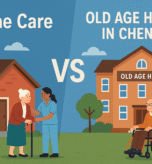
The Role of Home Care in Post-Hospitalization Recovery
When a person is discharged from the hospital, it’s often just the beginning of their recovery journey. For many patients, the transition from hospital to home can be a challenging and overwhelming experience. It can be particularly difficult for elderly or disabled individuals, who may have mobility issues, chronic conditions, or a lack of support from family members. This is where home care can play a vital role in post-hospitalization recovery.
Home care is a service that provides medical and non-medical assistance to individuals in their own homes. It’s designed to help patients recover from illness or injury, manage chronic conditions, and maintain their independence. Home care services can range from basic tasks like meal preparation and housekeeping to more complex medical care, such as wound care, medication management, and physical therapy.
The role of home care in post-hospitalization recovery is multifaceted. Here are some of the key ways that home care can support patients in their recovery journey:
1. Assistance with Activities of Daily Living (ADLs)
After being discharged from the hospital, many patients may struggle with basic activities of daily living (ADLs) such as bathing, dressing, and grooming. This can be particularly challenging for individuals who have undergone surgery or have limited mobility due to an injury or illness. Home care providers can assist with these tasks, helping patients to maintain their hygiene and dignity while they recover.
2. Medication Management
One of the most significant challenges facing patients after they leave the hospital is managing their medications. It can be challenging to keep track of multiple prescriptions, remember when to take them, and ensure that they’re taken correctly. Home care providers can help patients manage their medications by setting up a medication schedule, reminding them to take their medications, and providing assistance with administering medications.
3. Wound Care
For patients who have undergone surgery or have a chronic condition such as diabetes, proper wound care is essential for a successful recovery. Home care providers can assist with wound care, ensuring that wounds are properly cleaned, dressed, and monitored for signs of infection.
4. Physical Therapy
Many patients require physical therapy after leaving the hospital to help them regain strength, mobility, and independence. Home care providers can work with patients to develop an individualized physical therapy plan, which may include exercises, stretches, and other techniques designed to improve their range of motion and strength.
5. Companionship and Emotional Support
Recovering from an illness or injury can be an isolating experience, particularly for patients who live alone or have limited social support. Home care providers can offer companionship and emotional support, providing patients with someone to talk to and share their concerns with. This can be particularly valuable for elderly patients, who may be at risk of depression or social isolation.
6. Coordination of Care
Managing post-hospitalization recovery can be a complex process, particularly for patients with multiple medical conditions or who require ongoing care. Home care providers can help coordinate care between different healthcare providers, ensuring that patients receive the appropriate medical care and support to facilitate their recovery.
7. Fall Prevention
For elderly patients, falls are a significant risk during post-hospitalization recovery. Home care providers can help reduce this risk by assessing the patient’s home environment for fall hazards, providing education on fall prevention techniques, and assisting with mobility and transfers.
Conclusion
In summary, home care can play a vital role in post-hospitalization recovery. It can provide patients with the support and care they need to manage their recovery, maintain their independence, and improve their quality of life. If you or a loved one are in need of post-hospitalization care, consider reaching out to a home care provider to learn more about the services they offer.





